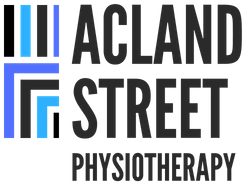|
Anterior Cruciate Ligament (ACL) injuries are a common concern among athletes and physically active individuals, often leading to a challenging decision: to opt for surgery or explore non-surgical treatment options. Recent research provides compelling evidence that ACL ruptures can potentially heal on their own, offering an alternative pathway to recovery without the need for surgical intervention. This blog post delves into the findings of two significant studies that shed light on the natural healing capabilities of the ACL and the implications for treatment strategies.
Healing of ACL Ruptures: Insights from the Cross Bracing Protocol Study A groundbreaking study published in the British Journal of Sports Medicine by Filbay et al. (2023) investigated the outcomes of non-surgical management of acute ACL ruptures using the Cross Bracing Protocol (CBP). This protocol entails knee immobilisation at 90° flexion in a brace for four weeks, followed by progressive increases in range-of-motion until brace removal at 12 weeks, and physiotherapist-supervised, goal-oriented rehabilitation. The study's findings are encouraging, showing that 90% of patients had evidence of ACL healing on a 3-month MRI. Participants with better healing outcomes reported higher scores on the Lysholm Scale and ACL Quality of Life (ACLQOL), experienced normal knee laxity, and were more likely to return to pre-injury levels of sport participation. These results highlight the potential of non-surgical management to support ACL healing, suggesting that such approaches could lead to favourable outcomes for certain patients. The KANON Trial: A Secondary Analysis on ACL Healing and Patient-Reported Outcomes Further supporting the potential for non-surgical recovery, a secondary analysis from the KANON trial, also published in the British Journal of Sports Medicine by Filbay et al. (2023), evaluated the natural course of ACL healing and its association with patient-reported outcomes. This analysis focused on participants who were managed with rehabilitation alone, comparing their outcomes to those who underwent early or optional delayed ACL reconstruction. The results revealed that 53% of participants managed with rehabilitation alone exhibited MRI evidence of ACL healing at the 2-year follow-up. These individuals reported significantly better outcomes in terms of sports and recreational function, as well as quality of life, compared to those without evidence of healing or who underwent ACL reconstruction. The findings suggest that a considerable proportion of adults with ACL ruptures could achieve spontaneous healing, leading to favourable clinical outcomes. Implications for Treatment Strategies These studies challenge the conventional wisdom that surgery is the only solution for ACL ruptures, opening the door to non-surgical treatment options for selected patients. The evidence points towards the natural healing capabilities of the ACL, suggesting that with appropriate management, including bracing and physiotherapy-led rehabilitation, patients can achieve successful outcomes without the need for surgical intervention. It is essential to recognise that the decision between surgical and non-surgical treatment should be personalised, taking into account the individual's specific circumstances, injury characteristics, and lifestyle needs. Patients should consult with healthcare professionals, including physiotherapists, to determine the most suitable treatment pathway for their situation. Conclusion The potential for ACL ruptures to heal without surgery offers a promising alternative for patients seeking non-surgical treatment options. The findings from recent research underscore the importance of exploring all available treatment pathways and highlight the role of physiotherapy in supporting recovery from ACL injuries. As we continue to learn more about the ACL's natural healing process, it is crucial to keep an open mind regarding the best practices for managing these challenging injuries. References
0 Comments
Leave a Reply. |
Author
Archives
May 2024
|
Copyright Acland Street Physiotherapy © 2024

 RSS Feed
RSS Feed